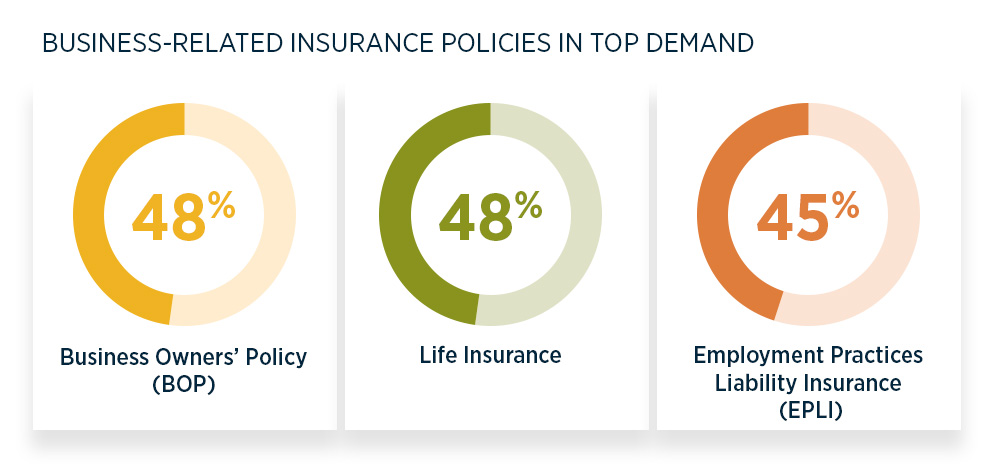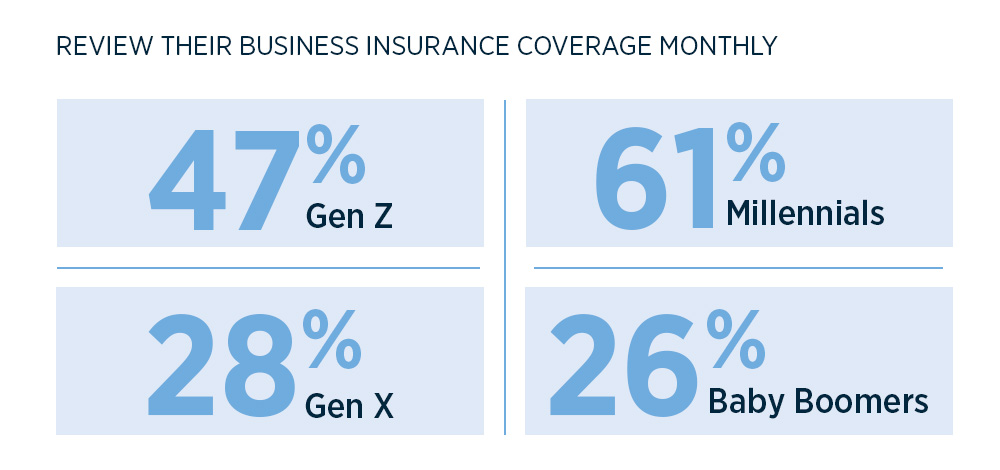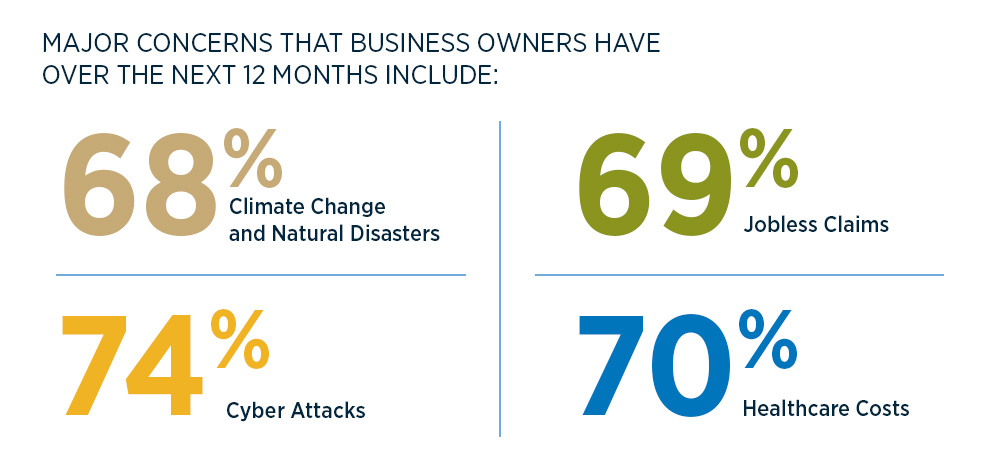
Business owners have a lot to think about. From employees to supply chain to finding that next customer, keeping track of what is needed to make a business run smoothly is a never-ending list. The behind-the-scenes is often equally important — if not more important — than what someone from outside the business can see.
Gallagher commissioned a survey of 1,000 US business owners to glean insights on their mindsets about risk mitigation. It's no surprise that to keep things running smoothly, many business owners rely on a solid risk mitigation strategy. In fact, 97% of business owners have business-related insurance policies to protect themselves, their employees and their assets against the unknown.
But is having business-related insurance policies enough? An overwhelming majority of business owners — 83% — express worries about specific events or losses that have the potential to affect their business, and another 83% are actively looking or very likely to seek additional insurance policies to provide greater protection. Business-related insurance policies in top demand include:
- Business Owners' policy (BOP): 48% would consider expanding or getting new BOP coverage.
- Life insurance: 48% would consider expanding or getting new life insurance coverage.
- Employment Practices Liability insurance (EPLI): 45% would consider expanding or getting new EPLI coverage.

Bottom line: There's a strong need for tailored business insurance coverage to alleviate business owners' concerns. What else concerns business owners?
- Climate change and natural disasters: 68% of business owners have extreme or very high concern about how climate change and natural disasters could affect their businesses.
- Jobless claims: 69% expressed extreme or very high concern about the potential impact of jobless claims.
- Cyber attacks: 74% expressed extreme or very high concern about the impact of a cyber attack on their business.
- Healthcare costs: 70% expressed extreme or very high concern about the effects of healthcare costs on their business.
Planning for the future boosts business owners' confidence
Business owners who actively review and prepare for the future have increased confidence in their risk management strategies, which holds true for Millennials in particular. Millennials are twice as likely to review their business insurance coverage monthly (61%) compared to Gen X (28%) and Baby Boomers (26%). They also perceive their risk management strategies as extremely effective, with 50% expressing confidence, compared to Gen Z (28%) and Gen X (23%).

In the dynamic realm of modern business, staying afloat amidst complexities and uncertainties requires a strategic approach. Regular review and proactive risk management must serve as the compass guiding business owners through uncharted waters. By diligently assessing insurance coverage and implementing effective strategies, business owners can better chart a course to enhanced confidence and fortified protection.
Insurance can help business owners. It alleviates concerns over outside risks that affect how their business can support their family.
Study Methodology
The survey was conducted from March 29 through April 11 by Wakefield Research among a representative sample of 1,000 American business owners from organizations ranging in size from one to 1,000 employees, with the median organization size ranging from 101 to 500 employees. The sample size and methodology ensure a statistically significant representation of the target population.
Results of any sample are subject to sampling variation. The magnitude of the variation is measurable and is affected by the number of interviews and the level of the percentages expressing the results. For the interviews conducted in this particular study, the chances are 95 in 100 that a survey result does not vary, plus or minus, by more than 3.1 percentage points from the result that would be obtained if interviews had been conducted with all persons in the universe represented by the sample.


